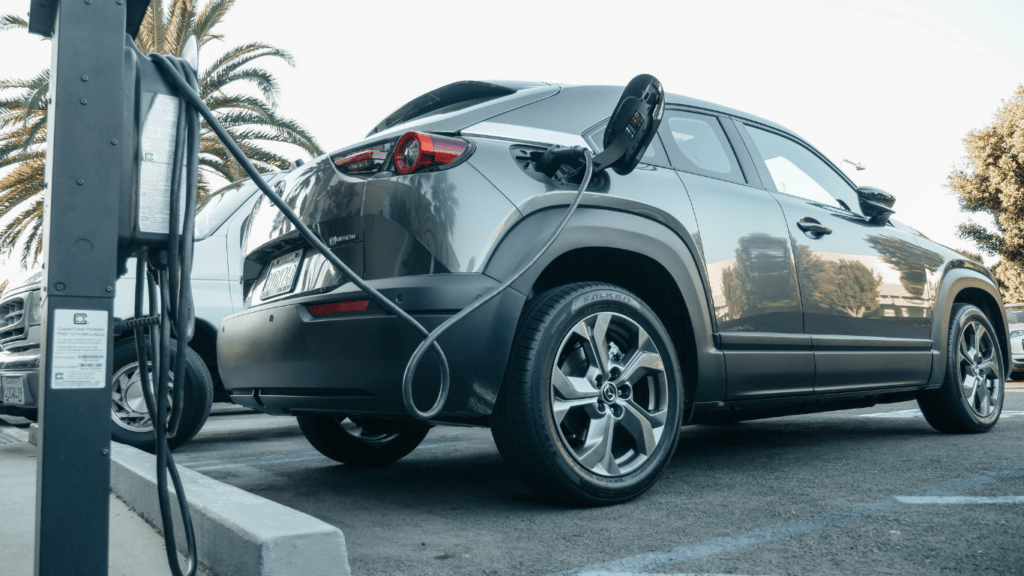Rise of Electric Vehicles in Car Rentals
Rental companies have increasingly adopted electric vehicles (EVs), transforming the car rental landscape. This shift responds to environmental awareness and evolving customer preferences, setting a new industry standard.
Historical Background
Car rental companies traditionally relied on gasoline-powered vehicles. Hertz, Avis, and Enterprise built extensive fleets around conventional cars. The development of EVs, such as the Nissan Leaf and Tesla Model S, began shifting the paradigm. Early-adopter rental firms started experimenting with limited EV offerings around 2010, identifying growing consumer interest in sustainable options.
Current Market Trends
- The market now sees a significant uptick in EV adoption among car rental providers.
- Companies like Hertz and Avis now feature EVs like the Tesla Model 3 and Chevrolet Bolt in their fleets.
- Rental firms report increased demand for EVs, driven by lower fuel costs and environmental benefits.
- Data from BloombergNEF indicates that by 2030, 40% of rental fleets could be electric, highlighting a trend towards sustainable transportation and customer satisfaction.
Benefits of Electric Vehicles for Car Rentals
Electric vehicles (EVs) offer significant advantages for car rentals. These include:
- environmental impacts
- cost efficiency
- enhanced customer experience
Environmental Impact
EVs help rental firms lessen their carbon footprints. Unlike gasoline vehicles, EVs produce no tailpipe emissions, cutting pollution. For eco-conscious travelers, EVs make a compelling choice, driving business to sustainable rental agencies. Studies show that widespread EV adoption can reduce greenhouse gas emissions by up to 50%, aiding sustainability goals and boosting a company’s green reputation.
Cost Efficiency
Reduced operating costs benefit rental companies using EVs. Electricity costs less than gasoline, cutting fuel expenses. EVs have fewer moving parts, leading to lower maintenance costs. Rental firms with large fleets can save millions annually by switching to EVs. Data indicates that EVs require 50% less maintenance over their lifespan compared to traditional vehicles, translating to substantial savings.
Customer Experience
EVs enhance the rental experience for customers. They provide a quiet, smooth ride, and instant acceleration, improving driving pleasure. Many EVs offer advanced tech features like autonomous driving and comprehensive infotainment systems, appealing to tech-savvy renters. Surveys show that over 80% of EV renters express high satisfaction, likely leading to repeat business and customer loyalty.
Challenges Faced by the Car Rental Industry

Incorporating electric vehicles (EVs) into rental fleets comes with its hurdles. These challenges largely revolve around infrastructure, costs, and customer concerns.
Infrastructure Limitations
Rental companies struggle with insufficient charging stations. Some cities have few public chargers, making it hard for renters to find convenient spots. Directly installing chargers at rental locations can be expensive and time-consuming. This problem gets worse in rural areas where charging infrastructure is sparse.
Upfront Costs
The initial investment for EVs can be a barrier. EVs generally cost more than their gasoline counterparts, impacting the fleet management budgets. High costs extend to setting up charging stations, requiring significant capital. This can deter smaller rental firms from adopting EVs early.
Range Anxiety
Range anxiety affects how customers perceive EV rentals. Many worry about the vehicle running out of power mid-journey. Although newer EV models offer extended ranges, user skepticism persists. Customers may prefer traditional cars for longer trips or unfamiliar routes. This sentiment can limit the appeal of EVs in the rental market.
Innovations and Solutions
Electric vehicles are transforming car rentals in numerous ways by driving technological developments and providing practical solutions to various challenges.
Expansion of Charging Networks
Rental companies are investing heavily in expanding charging networks. To make EV rentals more feasible, providers like Hertz are installing charging stations at rental locations. This move ensures customers have easy access to recharging options, alleviating range anxiety. In urban areas, these networks are growing rapidly. Rural zones, however, still need more infrastructure to match urban convenience.
Strategic Partnerships
Partnerships are vital in overcoming EV adoption hurdles. Rental firms are teaming up with charging station operators, vehicle manufacturers, and tech companies. For example, Avis collaborates with EVgo to provide extensive charging solutions. These alliances help build robust support systems, improve customer accessibility, and streamline EV integration into fleets.
Technological Advancements
Cutting-edge technology enhances the EV rental experience. Companies leverage advanced telematics to monitor vehicle health and optimize fleet efficiency. Mobile apps for EV renters offer real-time data on battery levels and nearest charging stations. Features like over-the-air updates keep EVs current with the latest improvements, providing a seamless experience for users.
Future Outlook
The future of electric vehicles (EVs) in the car rental industry looks promising. Growth trends, regulatory shifts, and increasing consumer acceptance are key factors reshaping this sector.
Predicted Market Growth
Market projections for EVs in car rentals indicate substantial growth. By 2030, experts forecast that 40% of rental fleets might be electric. The demand for EVs continues to rise due to their cost efficiency and environmental benefits. Rental companies like Enterprise and National plan to significantly expand their EV offerings, suggesting a bullish outlook on rental market growth for EVs.
Potential Regulatory Changes
Regulatory changes favoring EV adoption are expected to impact the car rental industry. Governments worldwide are implementing stricter emissions standards and offering incentives for EV purchases and infrastructure development. These regulations encourage rental companies to adopt EVs to comply with future standards and take advantage of financial incentives. For instance, California aims to have all new cars sold be electric by 2035, influencing rental companies to shift towards EVs in advance.
Consumer Adoption Rates
Consumer adoption rates for EV rentals are climbing. More travelers are opting for EVs due to increased environmental awareness and cost savings on fuel. Surveys show that rental customers increasingly prefer EVs over gasoline-powered cars, driven by the unique benefits EVs offer. Programs promoting EV awareness and education reinforce this trend, making customers more comfortable with choosing EVs for their transportation needs.




